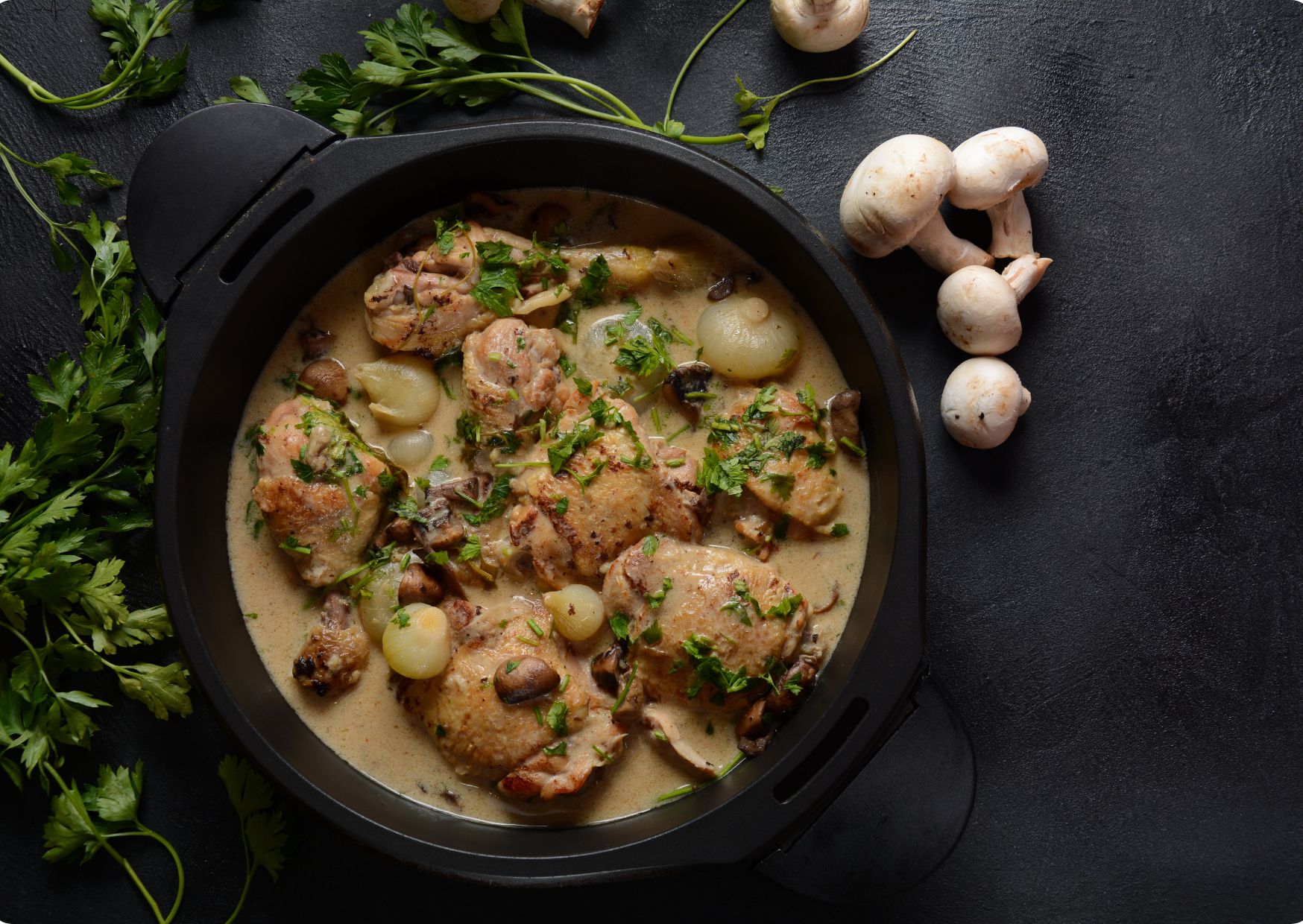Somali cuisine
“The best dishes are those cooked with love”
Description
Overview
Discover the rich and diverse flavors of Somali cuisine in this comprehensive online course. Somali cuisine is an extraordinary fusion of African, Arab, Indian, and Italian influences, reflecting the country’s history and cultural exchange. In this best Somali cuisine course, you’ll delve into the essential ingredients, traditional recipes, and culinary techniques that make Somali food unique.
Somalia’s cuisine is defined by its use of fresh and aromatic spices, such as cumin, coriander, cardamom, and cinnamon, combined with ingredients that are widely available in the region, like rice, meat, legumes, and dairy. Somali cooking places a significant emphasis on community, with meals often shared with family and friends. Whether it’s the famous bariis iskukaris (spiced rice), sambusas, or camel meat dishes, Somali food is both nourishing and flavorful, representing the heart of Somali culture.
In this online Somali cuisine course, you will learn the art of preparing authentic Somali dishes, gaining hands-on experience and knowledge that will elevate your cooking skills. You’ll discover the key spices, cooking methods, and the cultural significance of the food that makes it a truly unique part of the Horn of Africa’s gastronomic heritage.
By the end of the course, you will be well-versed in the preparation of popular Somali meals, including Xalwo (a sweet, spiced dessert), sambusas, and suqaar (a spiced meat dish). These dishes, along with others you’ll learn to cook in this course, reflect the historical influence of Islam, the availability of local ingredients, and the Somali love for bold and aromatic flavors.
This Somali cuisine course is ideal for anyone passionate about learning new and exciting culinary techniques and discovering the diverse culinary traditions of East Africa. Whether you’re living in the UK, the US, or anywhere else, you will be able to access the course online and cook these flavorful dishes from the comfort of your kitchen.
What You Will Learn:
- Authentic Somali Recipes: Learn to prepare classic Somali dishes like bariis iskukaris, Xalwo, sambusas, and suqaar.
- Spices and Ingredients: Understand the essential spices used in Somali cooking, including cumin, cinnamon, turmeric, and cardamom.
- Cultural Significance of Food: Gain insight into the cultural practices and communal aspects of Somali meals.
- Cooking Techniques: Master techniques such as slow cooking, frying, and preparing rice dishes.
This course will provide you with the tools to make Somali food a regular part of your culinary repertoire, whether you’re looking to impress guests with a unique dinner or expand your knowledge of global cuisine.
Description
Why You Should Take the Somali Cuisine Course
If you’re a culinary enthusiast looking to expand your cooking horizons, this online Somali cuisine course is the perfect way to explore the fascinating and flavorful world of Somali food. Somali cuisine is an underappreciated gem within African food traditions, often overshadowed by the more widely recognized cuisines of other regions. By taking this course, you’ll gain in-depth knowledge about Somali culinary traditions, which are rich in history, flavor, and cultural significance.
Somali cuisine is a beautiful reflection of Somalia’s diverse history, influenced by trade routes that brought spices, herbs, and cooking techniques from around the world. The country’s cuisine is a blend of African, Arab, and Asian flavors, with an emphasis on fresh, locally sourced ingredients and bold, aromatic spices. Somali food is unique for its use of ingredients like sorghum, millets, camel meat, beef, and spices like cloves, cardamom, and cinnamon.
This best Somali cuisine course is designed to give you a comprehensive understanding of Somali food, from traditional staples like bariis iskukaris (spiced rice), suqaar (a spiced meat dish), and sambusas (crispy pastries filled with meat or vegetables), to dessert items like Xalwo (a sweet, gelatinous dish made with sugar, cornstarch, and spices). You will also learn the importance of communal dining and how food plays a central role in Somali hospitality and celebrations.
This course is not just about preparing dishes. It’s about understanding the significance of Somali food, the history behind each dish, and the methods that make Somali food distinct. Whether you are based in the UK or any other part of the world, you can access this course online and start cooking Somali meals in your own kitchen. The course is suitable for both beginners and seasoned cooks looking to explore a new cuisine.
What Will You Learn in This Course?
Traditional Somali Dishes:
- Bariis Iskukaris (Spiced Rice): Learn how to prepare the Somali-style spiced rice, a staple dish in Somali households.
- Suqaar (Spiced Meat): Master the technique of preparing suqaar, a spiced meat dish that is commonly served with rice or flatbread.
- Sambusas: Discover how to prepare sambusas, the Somali version of stuffed pastries, perfect for snacks or appetizers.
- Xalwo (Somali Dessert): Learn how to make Xalwo, a sweet, aromatic Somali dessert enjoyed on special occasions.
Essential Somali Ingredients:
- Spices: Familiarize yourself with the core spices used in Somali cooking, including cumin, cinnamon, turmeric, cloves, and cardamom, and learn how to use them effectively in your dishes.
- Meats and Vegetables: Learn about the key protein sources in Somali cuisine, such as camel, beef, goat, and chicken, as well as common vegetables like spinach, potatoes, and carrots.
- Grains: Discover the importance of grains such as sorghum and millets in Somali cooking and how to prepare them for different dishes.
Cooking Techniques:
- Slow Cooking: Understand how Somali food relies on slow cooking to develop deep, rich flavors in meat and rice dishes.
- Frying and Roasting: Learn how to fry and roast key ingredients to perfection, giving your Somali dishes the authentic texture and flavor.
- Rice and Flatbread: Learn how to prepare the perfect rice and flatbreads to accompany your Somali meals.
Cultural Significance of Somali Food:
- Food and Community: Understand how food in Somali culture is tied to hospitality and social connections, with large family meals often served to share and enjoy together.
- Somali Celebrations: Learn about the role of food in Somali celebrations, including religious holidays and family gatherings.
Why Take This Course?
- Gain Culinary Skills: Learn to cook Somali dishes with confidence using easy-to-follow recipes and techniques.
- Explore a New Cuisine: Add diversity to your culinary knowledge by mastering the flavors of Somali cuisine, which combines African, Arab, and Asian influences.
- Enhance Your Cultural Understanding: Discover the cultural practices surrounding Somali food, including the communal aspects of dining and hospitality.
- Enjoy Authentic Somali Meals at Home: With access to the online Somali cuisine course, you can recreate traditional Somali meals in the comfort of your own kitchen.
This course is designed for anyone who is passionate about food, culture, and cooking. It is ideal for beginners who are curious about Somali cuisine or experienced cooks who want to explore new recipes and techniques.
This Course Best Fits For
This Somali cuisine course is best suited for:
- Culinary Enthusiasts: If you’re excited to learn new, flavorful dishes from Somalia, this course will broaden your culinary skills.
- Home Cooks: Whether you’re an experienced cook or a beginner, this course provides step-by-step guidance to create authentic Somali dishes in your own kitchen.
- Cultural Explorers: If you’re fascinated by global cuisines and interested in the role of food in different cultures, this course will provide you with deep insights into Somali culinary traditions.
- Professional Chefs: Expand your knowledge of international cuisines and enhance your restaurant’s menu with Somali-inspired dishes.
- Anyone Looking for a New Challenge: If you enjoy experimenting with new ingredients and cooking techniques, this course is a great opportunity to try something new.
Requirements
To enroll in the Somali cuisine course, you will need:
- Basic Cooking Equipment: A stove, pots, pans, and utensils for chopping, stirring, and frying.
- Ingredients: Most ingredients can be found at local supermarkets or specialty stores. You’ll also receive guidance on sourcing specific Somali ingredients.
- Passion for Cooking: No professional cooking experience is required. You simply need an enthusiasm to learn and try new dishes.
Career Path
Mastering Somali cuisine opens up various career opportunities:
- Culinary Expert in Somali Cuisine: Specialize in Somali dishes and open a restaurant or catering service focused on Somali food.
- Food Blogger or YouTuber: Share your journey into Somali cuisine by creating content that showcases traditional dishes and modern adaptations.
- Culinary Instructor: Teach Somali cooking techniques and recipes at culinary schools or through online platforms.
- Cultural Consultant: Use your knowledge of Somali food culture to consult for events, festivals, or culinary experiences related to Somalia.
Course FAQ
1. Is this course suitable for beginners?
- Yes! The course is designed to be accessible to all skill levels, from beginners to experienced cooks. Each recipe and technique is explained in detail.
2. Can I take the course from anywhere?
- Absolutely! This online Somali cuisine course is available globally, so you can learn from anywhere, including the UK.
3. Do I need special ingredients for this course?
- While some ingredients may be new to you, most can be found in local grocery stores or online. The course provides suggestions on where to find specialty items.
4. How long will it take to complete the course?
- The course is self-paced, and you can complete it at your convenience. Most students finish it within a few weeks, but you can take as long as you need.
5. Will I receive a certificate upon completion?
- Yes! Upon completing the Somali cuisine course, you will receive a certificate that you can share on your professional profiles.

- LevelAll Levels
- Last UpdatedJanuary 13, 2025
Student Ratings & Reviews

